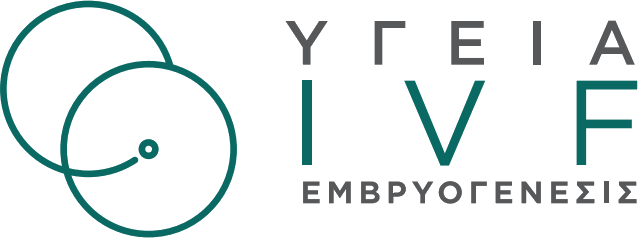Male Fertility
Male Fertility
The Andrology Lab of the HYGEIA IVF Embryogenesis Unit offers the entire range of sperm tests for detailed and personalized investigation of male infertility.
At the Unit, sperm analysis is performed by experienced clinical embryologists. This provides special knowledge on the fertilizing ability of the sperm, the available options and the optimum method of fertilization in a future IVF attempt.
Your desire to offer generously the love you hold inside you is also our desire.
![]()

The investigation for possible male factor infertility includes:
Semen analysis
The main exam for investigating possible male factor infertility is the semen analysis. It is best to be performed after 2-3 days of sexual abstinence, while its collection is preferably performed in the lab (if the collection is performed at home, the sample must be maintained at body temperature and submitted to the lab within 30 minutes).
If abnormalities are observed (which are not extreme), it is usually recommended to repeat the exam after some time. A complete semen analysis provides information about the volume, acidity, number, morphology and motility of sperm, the presence of inflammatory cells, and the concentration of fructose and other substances. If there is suspicion of inflammation, semen culture follows, to seek the responsible pathogen. Finally, the presence of antisperm antibodies may be a rare cause of infertility, which can be treated with ICSI IVF, although routine screening for these is not recommended.
Special semen tests
Μicrofluidics (Zymot)
In the Unit, we use microfluidics technology (Zymot) to isolate the sperm with the best motility, quality and viability, for fertilization of the eggs.
Sperm DNA fragmentation
The degree of sperm DNA damage (known as fragmentation) has been of great interest lately. This test is now possible using various methods (TUNEL, SCSA, COMET, SCD).
There are studies linking increased rates of fragmentation to infertility, lower chances of successful insemination and IVF, as well as increased miscarriages after natural conception or IVF. However, according to the most recent guidelines, routine screening is not recommended, except in cases of repeated unsuccessful attempts and recurrent miscarriages.
Oxidative stress measurement
Sperm produces small amounts of reactive oxygen species (ROS) required for its normal functioning. However, if the balance of ROS production and antioxidant activity is disturbed, high levels of free radicals will accumulate, causing oxidative stress. This has a negative effect on sperm quality and, therefore, affects fertility. In the event of diagnosed high levels, ROS can be reduced by receiving antioxidant treatment. The Andrology Lab of the HYGEIA IVF Embryogenesis Unit uses the Myoxis test, a special test to measure oxidative stress in sperm.
Sperm FISH technique
The FISH (fluorescent in situ hybridization) technique assesses the rate of sperm with chromosomal abnormalities in semen. Although it may be performed in the lab and although increased rates of abnormalities have been associated with recurrent miscarriages and/or IVF failures, it is not recommended as a routine exam due to the ambiguity of results.
Other screening tests for the men
In case of varicocele, an ultrasound of the scrotum is performed to identify dilated veins. In the event of suspicion of an endocrine disorder, hormonal tests are performed (testosterone, FSH, LH, prolactin, etc.). Finally, in case of severe oligospermia or azoospermia, chromosome testing (karyotype), Y chromosome analysis for micro-deficiencies as well as cystic fibrosis genetic testing should be performed.
Surgical sperm retrieval
Surgical sperm retrieval is recommended for men with azoospermia. It can be performed either from the testicles or from the epididymis.
Testicular biopsy (testicular sperm extraction – TESE):
It is performed in cases of obstructive or non-obstructive azoospermia, and includes open biopsy and collection of small testicular tissue blocks.
The operation is performed either on the day of the egg retrieval or earlier. The testicular tissue blocks are collected by a urology surgeon and then special treatment follows by an embryologist in order to find and isolate sperm. The method used primarily for surgical sperm retrieval is TESE.
Surgical retrieval of epididymal sperm (percutaneous epididymal sperm aspiration – PESA):
It can be used alternatively to TESE in cases of obstructive azoospermia with normal spermatogenesis. It is performed by epididymal aspiration using a fine needle. The aspirated fluid is examined by an embryologist in order to find and isolate sperm.
In both methods (TESE and PESA), after finding the sperm, the eggs are fertilized using the microfertilization method, while there is also the option of cryopreservation in the event of excess sperm.
Processing the testicular tissue, isolating the sperm and fertilizing the eggs after a testicular biopsy require the high technical skills of an embryologist and the procedure is usually time consuming. In cases of complete absence of spermatogenesis, no sperm is found.
Finally, every couple undergoing any method of assisted reproduction should be screened in accordance with the applicable law (both partners) for Australian antigen of hepatitis B, hepatitis C, HIV and syphilis infection.
